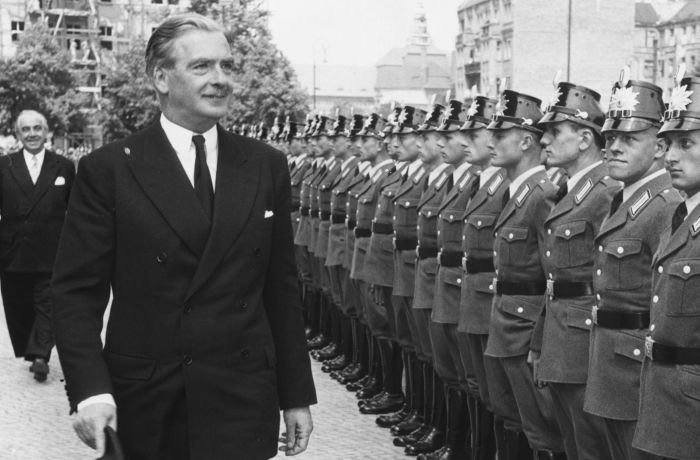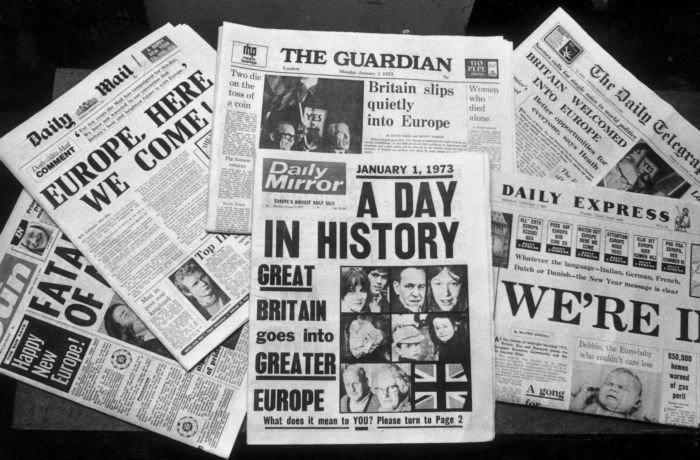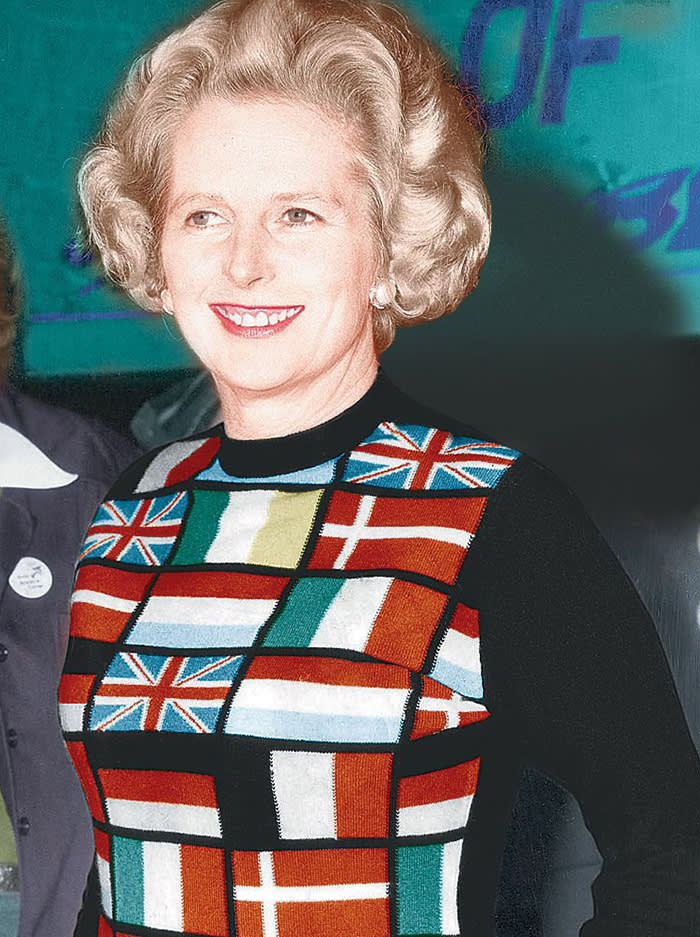Always detached, Britain has now forced a complete break from Brussels
Past prime ministers put head before heart on Europe. Not any more
by Philip StephensThe Tory grandee Chris Patten once called it “the existential question”. Will Britain ever actually join Europe, he asked in 2004. His exasperation was entirely explicable. Thirty years after signing the Treaty of Rome, Britain was still semi-detached.
Well, Lord Patten has his answer. On February 1 Brexit becomes the legal reality. For a moment after the 2016 referendum it seemed Britain might half cling on — at least to the single market and customs union. Boris Johnson’s government has forced a complete break.
All manner of explanations are offered for the Leave vote. A good starting point is the reckless insouciance of David Cameron in calling a referendum after six years of austerity. The anti-globalisation backlash that has nurtured rising populism elsewhere played a part; as did Nigel Farage’s Ukip in turning fears about immigration into antipathy towards Europe.
Behind the immediate anger stood the debates about sovereignty and Britain’s place in the world that ensured Britain came late to the club. To listen to Mr Johnson in 2020 about “Global Britain” is to hear Anthony Eden explaining during the 1950s why Britain should stand aside from a common market.
Eden, as foreign secretary and prime minister during the run-up to the 1955 Messina conference that set six European countries on a course for closer integration, insisted that Europe was too small a stage. “Our thoughts move across the seas to the many communities in which our people play their part in every corner of the world,” he declared. “These are our family ties. That is our life.”

The original six had a powerful reason to come together. A glance at devastated cities, broken industries and collapsed political systems framed a compelling case for institutions to permanently underwrite postwar reconciliation. There were also more selfish, national interests in throwing in their lot together.
West Germany needed a route to political legitimacy and markets for its recovering industry. France wanted political leadership of the continent and to build Europe as a counterweight to the US. “Europe will be your revenge,” the German chancellor Konrad Adenauer told French prime minister Guy Mollet after Dwight D Eisenhower pulled the plug on the Anglo-French Suez expedition. Revenge against both Washington and perfidious Albion.
Britain saw no such imperatives. It had stood alone in 1940 and won the war (the US and Soviet Union had only walk-on parts). The nation’s political institutions had emerged intact. Winston Churchill thought a united Europe a fine idea, but not suited to a great power standing at the intersection of Empire, the US and Europe. Jean Monnet, one of the EU’s founding fathers, understood. “I came to the conclusion that it must have been because it was the price of victory — the illusion that you could maintain what you had, without change.”

Harold Macmillan, having replaced Eden as British prime minister after Suez, took a more hard-headed view. By the 1960s Europe’s Common Market was thriving and Britain’s economic performance was lagging behind. “In the past, a great maritime power, we might have given way to insular feelings of superiority over foreign breeds,” Macmillan said. “But we have to consider the world as it is today and will be tomorrow, and not in outdated terms of a vanquished past.”
Yet even after it joined in 1973 Britain never really persuaded itself as to why it had done so. Its partners saw Europe as both a “cause” and a route to prosperity. For Britain it was more a question of “needs must” — and an inconvenient reminder it had fallen on hard times.
The first port of call for prime ministers would always be the White House. Macmillan styled Britain as a wise Greece to America’s unsophisticated Rome. If Britain had lost an empire, the next best thing was to try to co-opt American power to British ends.

Edward Heath was the exception to the rule. His formative experiences included listening to Hitler at a Nuremberg rally and catching sight in Spain of Franco’s nationalists bombing civilians. He felt European in his heart as well as his head. Instead of rushing off to the White House, he waited for Richard Nixon to visit him at Chequers. Henry Kissinger, Nixon’s secretary of state, called him England’s version of Charles De Gaulle.
Margaret Thatcher’s victory in 1979 might have changed things. Membership, she had told the House of Commons, opened “windows on the world that otherwise would be closing”. Her Europeanism, however, was head rather than heart. What animated her was fighting the cold war with her soulmate Ronald Reagan. The demand for a permanent rebate on Britain’s payments to Brussels was not unreasonable but the four-year shouting match did not win her friends.
European Commission president Jacques Delors’ grand designs for a united Europe brought in turn her infamous 1988 Bruges speech before her own party called a halt on Thatcher’s premiership.

Game, set and match: Downing Street’s triumphalist claim for the deal struck by Thatcher’s successor John Major in the Dutch town of Maastricht was always curious. It measured Sir John’s achievements in negatives: opt-outs from the single currency and social legislation and direct government control over co-operation in foreign, defence policy and judicial matters.
Sir John hoped he had found a new — semi-detached — settlement that would allow the rest of the EU to get on with its grand projects while permitting Britain to sit them out. It might have worked had it not been for sterling’s ejection from the exchange rate mechanism in 1992, Denmark’s “No” vote to Maastricht (later reversed) and seething resentment among Thatcherites at her fall.

Tony Blair learned passable French working in a Parisian bar and took his holidays in the Tuscan hills. He was from a generation that had none of Thatcher’s hangups about German hegemony. For a time he cut a dash across the continent, signing two new treaties and breaking a taboo by agreeing a defence accord with France. Yet he ran scared of the Eurosceptic media and ducked a fight with chancellor Gordon Brown about joining the euro.
And Washington was always the priority. Mr Blair went on a “third way” tour with his mentor and chum Bill Clinton. Then came the invasion of Iraq. Germany’s Gerhard Schröder and France’s Jacques Chirac sought to unite Europe against the war. Mr Blair was in too deep with George W Bush. The fabled transatlantic bridge between Europe and America collapsed.

The Brits never enthused about the EU. Though the numbers fluctuated, opinion polls through the decades typically showed about 40 per cent in favour, perhaps a third against, and the rest indifferent. Two things changed in the years before the referendum.
As elsewhere in Europe, the financial crash and austerity hardened the resentments of those in provincial towns and small cities who felt left behind by globalisation and technology. And the influx of migrant workers from central and eastern Europe put Brussels front and centre of the supposed conspiracy of the elites.
The price of “taking back control” has been a badly fractured UK union. Scotland and Northern Ireland voted to remain. So did London and almost all of England’s big cities. The elderly and less well educated backed Leave, the young and relatively affluent Remain.
The simple fact of geography — the reason why Britain has never been able to disentangle its political and economic fortunes from those of its continental neighbours — has not changed. The dust of Brexit will take time to settle. Then Britain will have to think again as to whether there is another way of “joining” Europe.